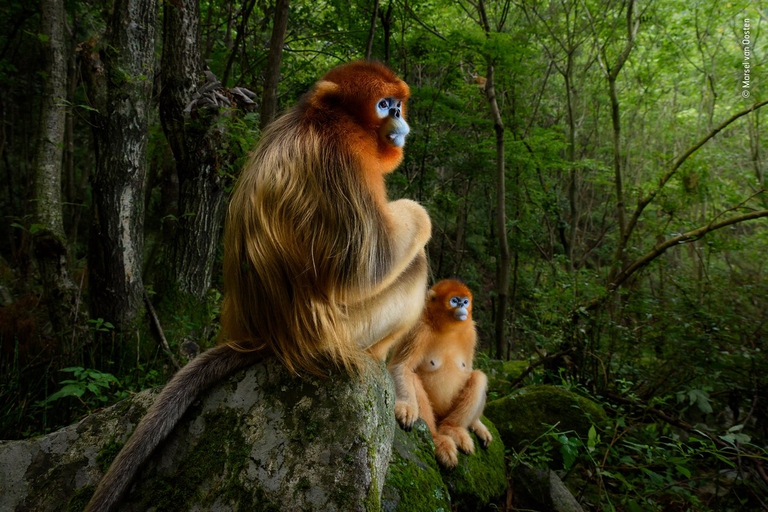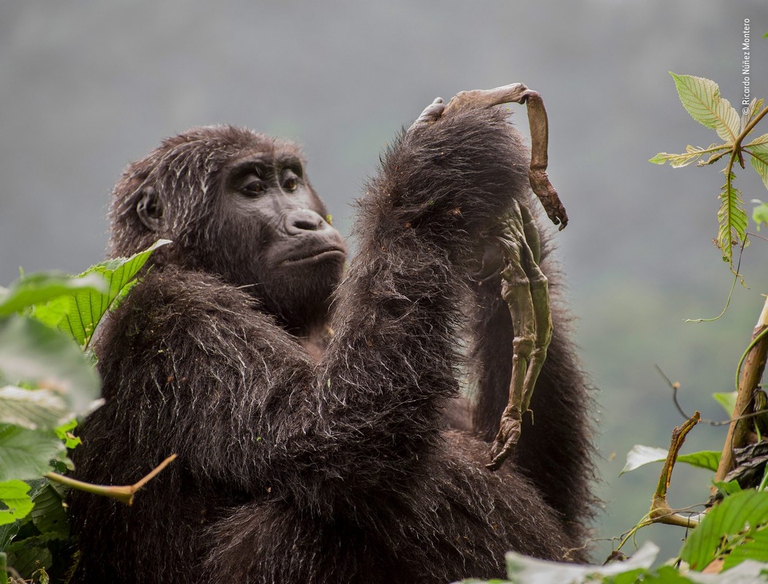
A report by Ember explains that in 2025 electricity generation from renewables (solar, wind and hydropower) surpassed that from fossil fuel sources.
A couple of endangered primates won the Wildlife Photographer of the Year 2018, a glowing reminder of what we could lose if we don’t protect the natural world. The story behind this and all winning photos.
Inspiring curiosity and wonder, showcasing the best wildlife photography, and making us reconsider our place in the natural world. This is the aim of the Wildlife Photographer of the Year, one of the most prestigious photo contests in the world that is back for the 54th edition. The simplicity and artistic power of the winning photographs unveil glimpses of the natural world, from the most pristine environments home to species’ innate behaviours to others that have been affected by the presence of humanity, to which wildlife had to adapt.
The winning photo of this year’s edition depicts a couple of golden snub-nosed monkeys, an endangered species of primates endemic to China, in the temperate forest of the Qin Mountains, the only habitat where this beautiful animal lives. “This image is in one sense traditional – a portrait. But what a striking one, and what magical animals. It is a symbolic reminder of the beauty of nature and how impoverished we are becoming as nature is diminished. It is an artwork worthy of hanging in any gallery in the world”. This is how the jury commented the victory of Dutch photographer Marsel van Oosten who managed to capture the fragile beauty of the creatures we share our Planet with and that should encourage us to protect them.
Nature should be protected as a whole, with its more magnificent sides as well as the aspects that may seem cruel to human eyes, but that are simply natural in the end. This is how the winners of this edition make us dive into such behaviours, from a mourning mother mountain gorilla who holds her lifeless baby that didn’t make it for the cold temperatures, or to the Galapagos Islands, where finches become “vampires” in times of food shortages, stealing blood from boobies, a bird species thriving on the island, to survive.
Then there’s a marsican bear wandering in the dark streets of a village in the Italian Apennines looking for food, and a “sad clown” embodied by a small Java macaque being trained to stand upright, while chained and masked, for new street performances.
These are only some of the stories behind the photos that stood out among 45,000 entries from professional and amateur photographers from 95 countries. The winning pictures will be showcased at London’s Natural History Museum, which organises the contest, until summer 2019 and will then embark on a world tour. A journey that lead us to the discovery of the delicate world that surrounds us and needs to be protected, from ourselves.
Siamo anche su WhatsApp. Segui il canale ufficiale LifeGate per restare aggiornata, aggiornato sulle ultime notizie e sulle nostre attività.
![]()
Quest'opera è distribuita con Licenza Creative Commons Attribuzione - Non commerciale - Non opere derivate 4.0 Internazionale.
A report by Ember explains that in 2025 electricity generation from renewables (solar, wind and hydropower) surpassed that from fossil fuel sources.
The Tyler Prize, considered the “Nobel Prize for the Environment,” has been awarded to Toby Kiers, an American biologist working in Amsterdam.
Belgium is one of the countries most exposed to climate change. Dune–dikes are a solution to curb sea-level rise.
Between October 2024 and September 2025, the average temperature in the Arctic was 1.6 degrees Celsius higher than during the 1991–2020 period.
Undeclared conflicts of interest, paid authors, lack of transparency: one of the most cited studies on glyphosate, published in 2000, has been retracted.
The Copernicus service has released data for the first eleven months of 2025: global warming is set to come close to last year’s record.
The European Council and Parliament have reached an agreement on the European Commission’s proposal to deregulate new GMOs. But farming, organic agriculture, and environmental organizations are calling for it to be stopped.
The world’s second-largest producer has taken a historic decision. However, farms will have until 2034 to shut down.
A Greenpeace report denounces Russia’s political and economic model: a nexus of extractivism, authoritarianism and war that is destroying the environment, with serious repercussions for the global ecosystem.









